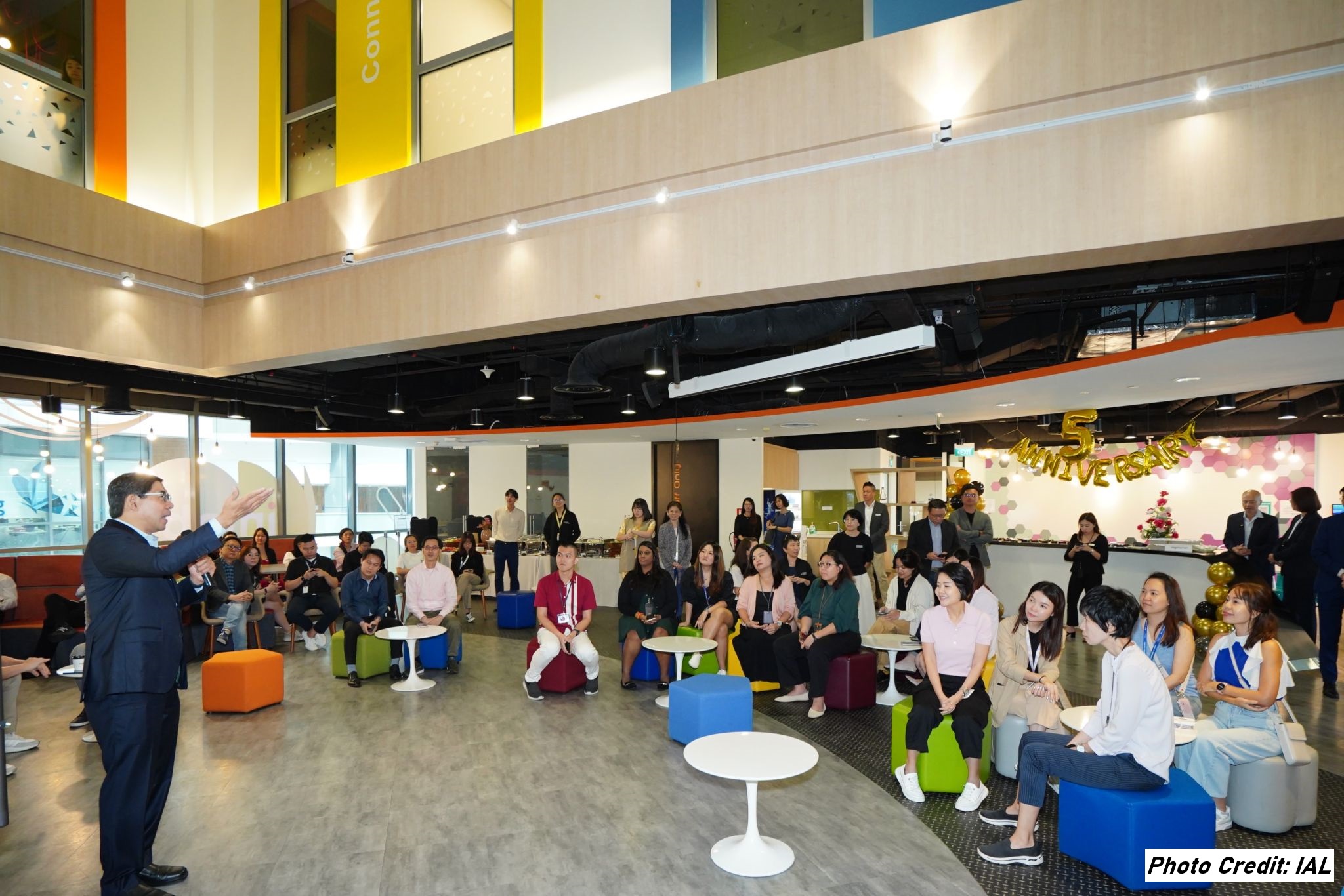Empowering lifelong learning: A dual approach to adult education
- Josephine Tan

In today’s fast-evolving global economy, the demands on the workforce have changed dramatically. Organisations are increasingly recognising the need for continuous learning to stay competitive, and Singapore is no exception.
The Institute for Adult Learning (IAL) has been at the forefront of this transformation, driving innovation in adult education. As it celebrates its fifth anniversary as an autonomous institute of the Singapore University of Social Sciences (SUSS), IAL is pioneering new solutions through its latest initiative, the Adult Learning Collaboratory (ALC).
The ALC, a joint initiative between IAL and SkillsFuture Singapore (SSG), is revolutionising how adult learners, educators, and industry partners collaborate to tackle complex learning challenges. Combining the concepts of “collaboration” and “laboratory”, the ALC serves as a dynamic space for experimentation and innovation. More than 20 ecosystem players, including large enterprises, Institutes of Higher Learnings (IHLs), and training providers, have partnered with ALC to explore new solutions across three critical domains: future-oriented pedagogies, digital capability development, and new-age business transformation.
The importance of a dual approach to learning
IAL’s approach underscored the importance of a symbiotic relationship between employee motivation and employer support for effective learning. Delphine Loo, Chief Legal Officer and Senior Director of Learning and Development, Singapore Academy of Law, emphasised that while individuals should be empowered to take ownership of their professional development, the presence of supportive employers is instrumental in fostering a conducive learning environment.
“Employees grow their identity as learners, and they are more likely to behave ethically, which is especially important for lawyers,” she told HRM Asia. However, without support from employers—particularly law firm partners—employees may struggle to keep up with the rapidly changing landscape of their professions. “Legal practice is evolving so quickly, and if you’re stuck in a sunset practice area, it can lead to burnout,” she added.
Nur Sahara Sadik, Deputy Director of the Research Division at IAL, echoed this sentiment, noting that IAL’s research consistently shows that learning must be “top-guided and bottom-enabled” to be fully integrated into organisational culture. “Without that bottom-enabled approach, you cannot take this forward into culture,” she explained. However, support from leadership is equally necessary to ensure that initiatives thrive.
Lucas Tok, Acting Director of the School of Business at Singapore Polytechnic, expanded on this by describing how his institution bridges the gap between adult learners and industry needs. “We work closely with both adult learners and industry partners,” Tok noted. He described how Singapore Polytechnic’s Business Innovation Centre job redesign consultancy with industry partners to identify future trends and create hybrid jobs. This collaborative approach ensures that learners are trained for emerging roles, preparing them for future-oriented workplaces.
ALC: Experimentation for the future workforce
The ALC’s value lies in its focus on real-world experimentation across various domains. For instance, Singapore Polytechnic has been experimenting with future-oriented pedagogies in its Specialist Diploma in Digital Marketing and Analytics programme. In partnership with IAL researchers, the programme aims to prepare digital marketers to anticipate and adapt to future trends, harness AI, and engage diverse audiences. This approach not only boosts learner confidence but also strengthens employability in a rapidly changing industry.
Tok shared his excitement about these developments, saying, “We are excited to partner with the ALC to leverage forward-thinking teaching methods that enhance our learners’ sense of identity, agency, and connection. By integrating these innovative approaches across diverse contexts and collaboratively designing assessments with industry partners, we ensure that our students not only acquire relevant knowledge but also develop the skills and confidence needed to succeed in the evolving workforce of the future.”
Similarly, the Singapore Academy of Law has been experimenting with future-oriented pedagogies to equip junior lawyers with the skills necessary to navigate the complexities of modern legal practice. Loo highlighted how these innovations shorten the learning runway for young lawyers, allowing them to balance the demands of work, family, and professional development more effectively. “This transformative approach to adult learning will ease the pressure on young lawyers, while also improving the quality of legal services,” she said.
READ MORE: Bridging Asia’s skills gap with AI-driven experiential learning
The ALC’s efforts extend beyond individual learning to include broader business transformation. By focusing on new-age business transformation, the Collaboratory aims to rejuvenate organisations through employee empowerment and bottom-up innovation. These initiatives help organisations grow by encouraging employees to take on higher-skill roles and actively participate in innovation processes.
As Associate Professor (Practice) Yeo Li Pheow, Executive Director of IAL, concluded, “The past five years have coincided with a period of digital and AI transformation at work, which has shifted the adult learning landscape in Singapore. As we celebrate our fifth anniversary and the opening of the ALC, we reaffirm our commitment to excellence in adult education. Through strategic partnerships, cutting-edge programmes, rigorous research, and continuous innovation, IAL is dedicated to equipping Singapore’s workforce with the skills and knowledge needed to thrive in a rapidly evolving global economy.”
For more news and analysis on the latest HR and workforce trends in Asia, subscribe to HRM Asia and be part of the region’s largest HR community!






